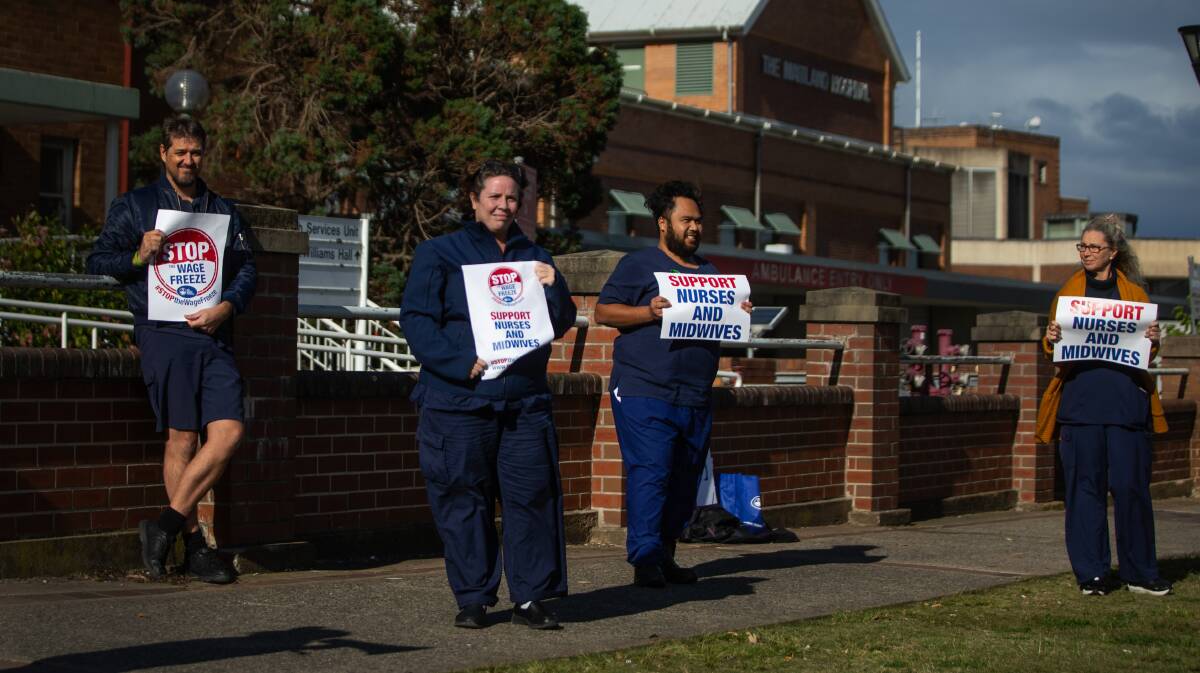
Our nation faces the most significant economic challenge in nearly a century. GDP will likely contract at least 20 per cent compared to pre-pandemic levels, with millions of jobs already on the scrapheap.
Subscribe now for unlimited access.
or signup to continue reading
Unbelievably, a top priority for governments has become freezing or cutting wages, public sector pay freezes and an industrial relations power play to kill the Awards system.
Recent research on impacts of the NSW government's proposed public sector wage freeze shows over 1100 jobs will be lost from workers' lower consumption.
Cutting wages and dooming working people to poverty is senseless. But governments refuse to learn from our own historical crisis responses in the GFC and the Great Depression.
We recovered from the GFC better than other countries because government invested in keeping people in jobs (key word here is "invested").
Others countries that walked the austerity path were mired for years with lower growth and higher unemployment.
But stimulus soon ran dry and critical failures of the business-led economy were painfully evident before the pandemic: declining business investment in new capital and innovation; the slowest sustained pace of wages growth since WWII; rising inequality; an explosion in insecure jobs and the labour underutilisation rate.
It will be impossible for this emaciated economy to "snap back". We need a powerful public policy response proportionate to the nature, speed and depth of this crisis. Discrete government stimulus programs will not cut it.
But Scott Morrison continues to pretend his hands are tied: "if there's no business, there's no jobs, there's no income, there's nothing." Market ideologues said this for 10 years during the Depression.
They tried to convince people government was powerless to fix joblessness and protect living standards, heralding a private-sector recovery that never came.
But there is something called public investment, Prime Minister. It's what we did on a mass coordinated scale to ensure we didn't return to the economic and social turmoil of the Depression.
And it's this fully-fledged comprehensive national government spending program we need now.
Government must break the investment gridlock. There are many priorities for a public-led post-COVID-19 reconstruction plan including: repairing and expanding our public healthcare and education systems; a sustained public investment program, for transportation, energy, utilities, and social housing; and building our renewable energy systems and networks.
We have the most educated generation in our history, and young workers have been disproportionately affected by the decline in hours worked and unemployment in this crisis.
Let's expand genuine career pathways before we lose a generation of skills, passion and potential.
Universities have been decimated by the loss of foreign students and exclusion from the JobKeeper wage subsidy.
Meanwhile, the disastrously privatised VET system cannot meet the needs of our economy for skilled workers. We need a complete reconstruction of the post-secondary skills system, with government funding injected into pillar institutions in both public universities and TAFE.
Ensuring public money is targeted to people's needs demands greater participation across all levels of society.
We need to open avenues for collective representation - not shut them down. In the rebuild, we need new localised reconstruction and jobs plans, especially for regional communities rebuilding from bushfires, anti-union laws lifted and a new sectoral bargaining system to increase participation and coordination of workers across industries.
The only actor with sufficient investment power and planning capacity to lead economic reconstruction is government.
With the private sector wounded, it's time we got comfortable with invoking direct tools of public investment, tools forced out of favour during a generation of market-worshipping neoliberal policy but which are essential to our recovery today.
This is a historic crossroads moment.
Should government refuse to take up the investment mantle they will plunge millions into misery only to endow a smaller layer of business the power to restructure a harsher, more unequal economy.
In 1942, years before the war ended, our national government formed a National Reconstruction Department to begin planning for post-war rebuilding.
We can unleash another national reconstruction plan fit for our era. One with a commitment to full employment at its heart, that pulls us through COVID-19 with stronger public services, and paves our way to a sustainable future.
Alison Pennington is the senior economist at the Centre for Future Work at the Australia Institute. She will be on the panel for the next Newcastle Institute webinar about The economy and the world of work on Wednesday June 10, from 7pm-8pm. People can watch the webinar live on Newcastle Institute Facebook page. Members can watch by Zoom. The webinar recording will be on Newcastle Institute's website, after the event.
While you're with us, did you know the Newcastle Herald offers breaking news alerts, daily email newsletters and more? Keep up to date with all the local news - sign up here
IN THE NEWS:

